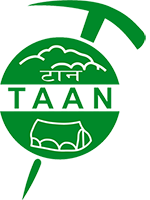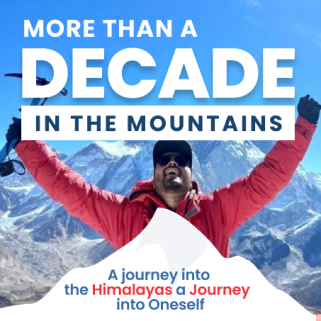
Volunteering in Nepal: Is it Something You Should Do?

Volunteering in Nepal: Is it Something You Should Do?
Swotah Travel
3824
08, 11 2020
Background
Most of us from the West have grown up volunteering in some way. Before you say, "no, I have never done that," think back. Did you sell raffle tickets for your school fair or village fete? Did you ever help cut the grass of an elderly neighbor? Did you serve drinks at your office Christmas party? Did you ever operate the phones for the Samaritans or another organization? I'm sure you have 'volunteered' at some point.
But what is the difference between these types of volunteering and volunteering in countries like Nepal?
What is Volunteering?
Volunteering can take many shapes, as I have indicated above. Some are formal and structured – such as helping out on a regular and timetabled basis with an organization, while some are unstructured, like walking your neighbor's dog.
Some are stepping stones to a paid career. Examples of these are Peace Corp and UN Volunteers.
Almost all will make you feel good about your contribution to society. So why is there a lot of negativity around volunteering in developing countries? Partly because of the previous sentence. Is the role of volunteering to make you feel good? Can you be sure you are making a difference in the society you are volunteering in?
What is Voluntourism?
Voluntourism is a buzzword that has been around for some time. It is volunteering taken overseas, in the majority of cases. Profit-making entrepreneurs have woken up to the fact there are plenty of people who love to travel and wish to 'do good while traveling. Whether they aim to take some responsibility in a world that seems to be going out of control, or whether the aim is to boost their social media profile or CV, people's desire to help others has now been turned into a business.
Why a business? Because the person volunteering their time is usually asked to pay for the pleasure of working with animals, children, or in a community. Their desire to help has turned something that should be charitable giving into a profit-making business.
We can ask, is voluntourism the same as volunteering? We see in many blogs, papers, and conversations these words are used interchangeably. But if we realize volunteering is something we organize ourselves and offer freely. In contrast, voluntourism is something that an agency or second person organizes and something we have to pay for, and then we begin to see the difference.
Volunteering and Voluntourism in Nepal
If you Google volunteering in Nepal, you will come across dozens of websites advertising volunteering positions. The majority of these are fake. Fake in that volunteering on a tourist visa in Nepal is illegal. Offering tourists positions as volunteers is illegal in Nepal. For years the Government of Nepal has tried to clamp down on those organizations who are taking monetary and psychological advantage of tourists and on tourists coming in without skills and perhaps doing damage to those they are 'helping.' Please be aware that even volunteering for free (without paying anyone or being paid for your time) is illegal.
As I will explain, there are some genuine opportunities to volunteer (as opposed to becoming involved in voluntourism) in Nepal.
Think about it this way. What would you do if someone who didn't speak your language or understand your culture came to teach for a month at your child's school? Or if that same person came to your place of work, again with no language or cultural knowledge and with little or no skills in your profession. Would you feel comfortable? Particularly where your child is concerned.
While it is safe to travel in Nepal, are you ensuring a safe environment for the locals?

Real Opportunities to Help
Real opportunities to help do exist. Many of these do not involve volunteering. I will talk about these later in the blog.
But let's start by looking at some volunteering opportunities that may exist.
As I said, there are dozens of credible-looking websites which offer placements into schools or orphanages where your 'help' is sought. Most of these will ask you to pay something towards the organization – usually for your food and accommodation but perhaps towards the running of the place also. This is what we call voluntourism. Or getting tourists involved in volunteering.
Ignore these websites. I will tell you why later.
If you want to do something while in Nepal, you can:
- Contact a non-governmental organization:
If you have skills in English language teaching, you can perhaps help their staff improve their language skills.
If you have skills in plumbing or building, you can perhaps help with construction work at the community level. Bearing in mind the community has the last word, not you.
You can help out in their office with administration if they require it.
- Contact an international non-governmental organization:
There maybe be occasions when international NGOs require help. When there is a disaster or a shortage of local help.
Suppose you are medically qualified or have a particular skill (for example, a young woman I met during the earthquake in 2015 was a qualified carpenter and stayed on to help reconstruct homes). In that case, you are more likely to be considered beneficial.
- Contact a community organization:
Groups were helping stray dogs,d other animals were always looking for caring workers to help them. If you are a trained vet, so much better.
People working for the environment often need help for clean river ups etc.
- Other opportunities:
If you are a yoga teacher in your home country, why not help with yoga camps or at a yoga studio?
Are you an artist who can share your skills with others?
Can you fund a workshop or educational trip for children? Funded by you, run by locals who understand the kids' needs.
If you are very serious about long-term volunteer work, BEFORE you arrive in Nepal, you can contact organizations such as VSO, UN Volunteers, Peace Corps, etc. You will be recruited from your home country. You will be paid or receive a stipend from these organizations.
What Not to Do
NEVER work with children!
Here is why.
Note: you will also find similar advice on many embassy and UN websites under Nepal travel advice and safety.
Volunteering in even the most genuine school/children's home will result in stress among the children and could be taking a job from a local. Why stress among children when they seem to enjoy playing with international volunteers? At a young age, children are still developing mentally. Someone fun and interesting come in for a few weeks, leaving. A couple of months later, another fun and exciting person comes in and then leaves. And so on. There is a real possibility that the child will have a hard time forming long-term relationships in the future.
Then there are those children's homes/orphanages which are not genuine. Oh, they look great on paper; even when you visit, everything looks fine. You will be told the children are orphans and need to be in this home, usually in Kathmandu or Pokhara, and days from their home village. It's easier to take tourists to orphanages in tourist destinations, right? In 2019 an organization called Next Generation Nepal found that 80% of the children living in abusive orphanages (to quote their words) are not orphans. They have families. Horrifyingly, there is a whole business in trafficking children across borders (into India) and Nepal.
UNICEF's definition of child trafficking is: "A 'child victim of trafficking is any person under 18 who is recruited, transported, transferred, harbored or received for exploitation, either within or outside a country. Using illicit means, including violence or fraud, is irrelevant."
In other words, even if the parents are told (and usually are) that their child will receive a better education and life, they let their child go willingly to an 'orphanage.' Still, the real purpose is to exploit the child for money, which is child trafficking.
Do not be a part of this ongoing and growing horrific business!
And, of course, in any situation where people are allowed to work with children, the children are open to abuse. There are NO checks on who has come to volunteer with children in Nepal. As long as you pay your money, you're in!
International pedophiles have been found in Nepal.
So now you get the picture. At best, you may be taking a much-needed job from a local and causing children to cry when you leave because they have come to love you. At worst, you will be aiding in this circle of abuse.
So What Can You Do?
Aside from contacting the organizations mentioned above, you can give back/help Nepali communities in other ways.
- Learn from the locals:
Things are done differently here. You could learn a thing or two from the locals. Small businesses will benefit from sharing their skills. You could learn something about thanka painting, basket weaving, handicraft making, pottery, cooking, etc... More importantly, you will be learning something about the culture. And the money you pay to learn a skill or to buy a product will go directly to the family or community. One of the best ways to do this is by going on a homestay trek in Nepal.
- Use your funds wisely:
Instead of bringing your clothes from home, buy them here! Of course, you will have to bring some of your clothes, and pay attention to what you buy locally – was it made in Nepal or China?
Same with your souvenirs. Where are they made locally, particularly by women or underprivileged groups, via a not-for-profit organization? Buy the food here if you are thinking of bringing supplies in after a disaster (flood, landslides, earthquake, etc. e. Your money will stretch further, too! During the 2015 earthquake, a beautiful coloring book for children was given by a woman in the Philippines in soft copy and printed here for distribution to children. Think smart!
Even your accommodation. Is it locally owned? Or is it a Chinese or Indian property? Go local!
- Local trekking/tour agencies:
Many people buy their treks through large international companies, often in large groups rather than small group tours. While it's often reassuring that your agency is well established globally, it doesn't give back to the local communities you will be trekking through. A quick check on their website or a chat with them will confirm if they are using locally produced food, local porters, etc. Also, those large trekking groups are less likely to interconnect and mingle with the locals than small groups or those who come on family tours to Nepal.
The best idea is to book your trek through a local Nepali agency.
- Homestays vs. regular treks:
Some remarkable homestay treks, such as the Millennium Homestay Trek, bring you directly into people's homes. An opportunity for both trekker and host to learn something about each other. And you can be assured the money you paid is going directly to your host family. Swotah Travel's Millennium Homestay Trek provides income for host families and communities, supports a local school through scholarships for underprivileged children, and provides lunches for children and teachers!
- Choose the treks which give back the most:
The very popular treks, such as the Everest Base Camp Trek and the Annapurna Circuit, have been well established for years. The lodge owners in this area see thousands of tourists coming through each year. Yet there are many beautiful off-the-beaten-track treks in Nepal to remote areas which hardly see any tourists. People in these areas are more in need of income. Please check before booking.
But not just trekking. If you go on rafting, camping, safari, pilgrimage tours, adventure tours, etc., please look first to see if these tours directly or indirectly help the communities you will be traveling through and staying in. Even your luxury tour in Nepal can help to give back if you choose one of the best travel companies in Nepal.
- Donate with dignity:
Many trekkers over the years have handed out sweets and money to kids on the trails. Now the children are used to this and will come up to ask. Let's break this habit.
Why not donate to local schools or ask your trekking company to suggest where your funds or goods (books, toys, crayons, etc.) will be most helpful?
To Sum Up
Whether to volunteer or not is a tricky choice. You want to help. You want to feel good about yourself and want others to feel good too.
The first rule to remember: it's not about you. Your Instagram doesn't need pictures of you handing out stuff to street kids etc.
If you have an instrumental skills, such as being a vet, doctor, builder, agriculture expert, etc., you will be very welcome to help out where the need arises. Remember, you should not be asked to pay to volunteer.
If you are more enthusiastic than skilled, think hard about what you are doing. Are you indirectly perpetuating the abuse of children or communities? Are you taking away their dignity and chance of employment?
If you want to donate goods or money – seek advice on what is needed. Ask locally.
Finally, Nepal is a safe travel destination in Asia. Please help keep it safe for the women and children here.
Say no to the abusive kinds of voluntourism. Say no to child trafficking.
Thank you!
BTW: the above information applies not only to Nepal but to every developing country where there are underprivileged groups.
NEWSLETTER SIGNUP
Sign up to receive our trip ideas and travel offers!
Get updates and Exclusive Offers up to 20% Discount










